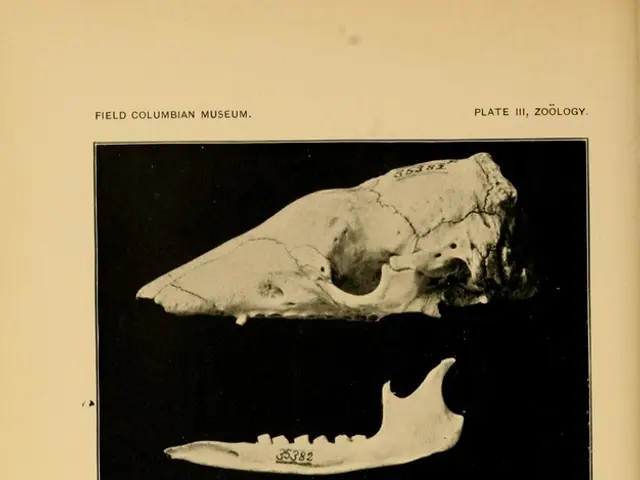Hot Flashes and Night Sweats: Could They Indicate a Significant Health Issue?
Hot Flashes and Night Sweats: A Common Struggle During Menopause
Let's dive into the topic of hot flashes and night sweats, commonly encountered during menopause. You probably know them under their catchier nicknames - these pesky symptoms can turn your days and nights upside down!
Now, what exactly causes them? It all comes down to changes in hormone levels. As women approach the age of forty, they experience decreased estrogen and progesterone levels, initiating the transitional period before menopause, known as perimenopause. The exact cause of hot flashes remains unclear, but it's believed that hormonal fluctuations might impact the brain's temperature center, resulting in the body's response to changes in internal temperature.
And boy, can these changes be intense! Hot flashes may cause you to break out in a sweat during the day, and night sweats might leave you drenched and uncomfortable. Here's what Dr. Andrea Sikon, a specialist in internal medicine and women's health, has to say about it:
The Normal Toll of Hot Flashes
Hot flashes can be very uncomfortable and they're a common symptom of menopause. When they occur during the night, they're referred to as night sweats.
According to Dr. Sikon, hot flashes are characterized by a sudden onset of intense heat in the trunk area, which then spreads and is followed by sweating and a sense of being cold afterwards. Different individuals may experience varying degrees of severity and length of hot flashes.
Some individuals might not experience hot flashes at all, but for those who do, they can be disruptive. Night sweats can cause wakefulness, leading to a need to change nightclothes or sheets.
Research shows that hot flashes, night sweats, and other vasomotor symptoms can last anywhere from four to seven years, although some individuals may experience them for much longer. Most women will experience mild to moderate symptoms, but there are a few who have severe ones that can last for decades.
The Impact on Health and Well-being
Although hot flashes and night sweats related to menopause are generally not dangerous, they can have indirect effects on your overall health. Night sweats, in particular, can hinder sleep, leading to fatigue, tiredness, weight gain, and even mood swings. According to the CDC, most adults need between seven and nine hours of sleep daily for optimal health.
If night sweats keep you from getting adequate sleep, it can affect your weight, cardiovascular health, and mood, so don't shrug it off!
Heart Concerns? Not Necessarily, But…
While hot flashes, in and of themselves, aren't harmful, they can sometimes be a sign of another underlying issue, particularly if they only occur during exertion and are accompanied by other symptoms like chest heaviness, tightness, or shortness of breath. In those instances, it's important to consult your doctor right away.
Historically, there have been concerns about hormone therapy causing an increased risk of cardiovascular disease. However, recent research has shown that estrogen can actually be beneficial if hormone therapy is started sooner rather than later.
Keep in mind that waiting ten years after menopause to begin hormone therapy can increase the risks outweighing the benefits.
Know When to Seek Help
If hot flashes are interfering with your daily life, you're not alone. Up to 75% of individuals who go through menopause experience hot flashes.
If you're experiencing multiple hot flashes throughout the day, feeling embarrassed by excessive sweating, or having trouble sleeping due to night sweats, don't hesitate to consult your doctor.
Make sure you select a doctor who has experience treating hot flashes, whether that's your primary care physician, an OB/GYN, or a specialist. Your doctor will ask about your symptoms, which may include questions about how it feels, how often you have hot flashes, when they occur, other symptoms you've been experiencing, and any medications you're currently taking.
Your doctor may suggest lifestyle changes, such as dressing in breathable fabrics, wearing layers, and avoiding triggers like spicy food, stress, heat, or alcohol. There are treatment options available, including hormone therapy, non-hormonal prescription medication, and alternative therapies.
In essence, hot flashes and night sweats can be a bother, but they don't have to control your life. With the right knowledge and support, you can manage these symptoms and move forward with confidence!
- The initial onset of hot flashes during menopause could potentially affect one's lifestyle, especially in terms of food choices, as certain triggers like spicy food exacerbate their occurrence.
- Uncontrolled hot flashes and night sweats can impact an individual's health and wellness beyond the physical discomfort, causing sleep disturbances that lead to adverse effects such as fatigue, weight gain, and mood swings.
- Women going through menopause may face health challenges related to women's health, particularly menopause, which could lead to complications if left untreated, and in some cases, these symptoms could be indicative of underlying heart concerns that require immediate medical attention.








